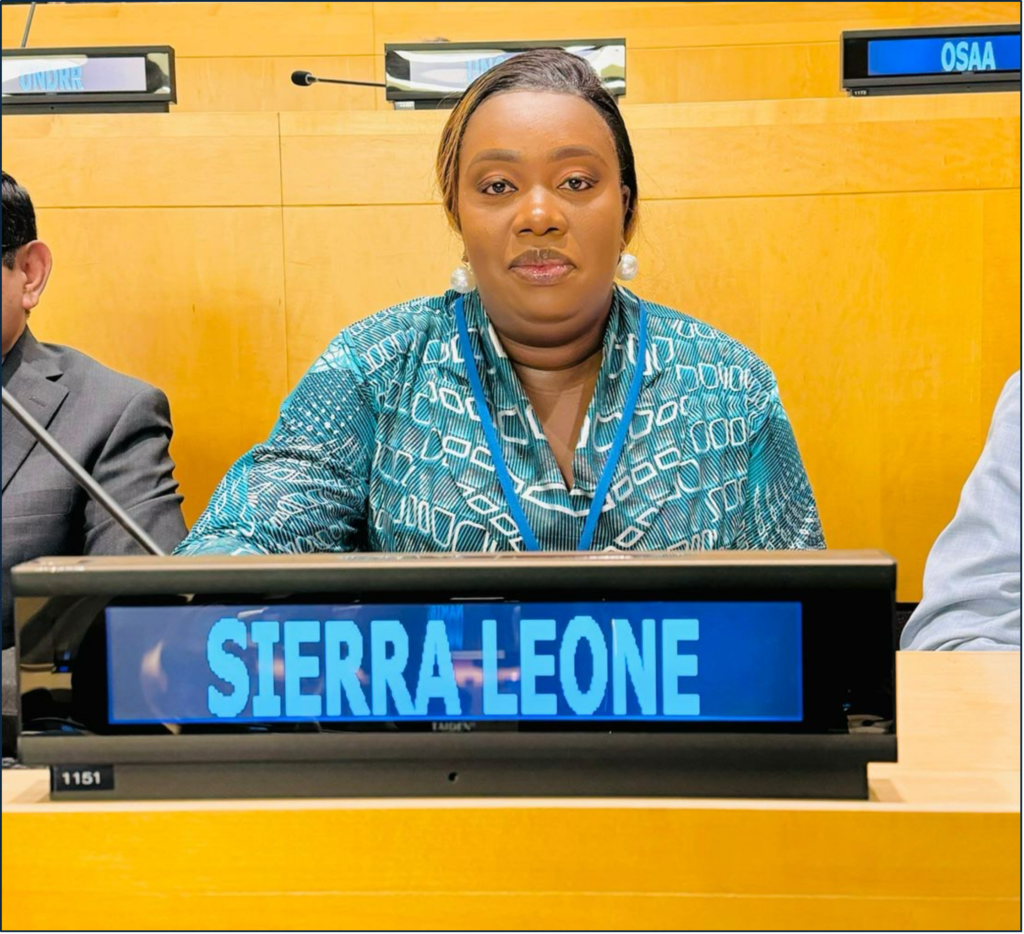The Board Chairperson of the NRA, Mrs Tuma Adama Gento-Kamara, has voiced her deep appreciation to ECOSOC for convening a Special Meeting on International Cooperation in Tax Matters at the Committee of Experts on tax matters at the United Nations on Monday 18th March 2024 at the UN Headquarters in New York.
According to her, the principal focus of the Special Meeting was “to identify effective approaches to fiscal policies for inclusive and sustainable development and to support a fair, inclusive, and effective international tax system”, as utmost significance to the Government of His Excellency Dr Julius Maada Bio, President of the Republic of Sierra Leone. Mrs. Gento-Kamara unequivocally stated that Sierra Leone has taken note of the two key themes of the dialogue, which were to first, promote inclusive and effective international tax cooperation at the UN, following General Assembly resolution 78/230 (of 22 December 2023); and secondly, explore the role of net wealth taxes in promoting equality and financing the SDGs.
In her remarks, Mrs. Kamara noted that the focus of the main concept paper is “to take into account the needs, priorities and capacities of all countries, in particular, developing countries”. She stated that the challenge for developing countries in dealing with aggressive tax avoidance and tax evasion is capacity building, and this serves as part of the barriers to domestic resource mobilization by developing countries. In this era of globalization and interconnectivity, Tuma Gento-Kamara emphasized the importance of robust tax systems and effective collaboration between nations, something that cannot be overstated. She continued that Sierra Leone has come a long way in overhauling the manual tax systems to full-fledged digital operations and the country’s digital drive is on the right trajectory.
One thing that cannot be overemphasized is that at the heart of International Tax Cooperation lies the imperative to build and strengthen the capacity of nations to administer and enforce their tax laws effectively, she continued. This, she said, requires a multifaceted approach encompassing technical assistance, knowledge sharing, and institutional capacity-building initiatives tailored to the unique needs and challenges faced by each country. In addition to fostering a culture of transparency, accountability, and good governance within tax administrations, Tuma Gento-Kamara said that capacity-building initiatives should be tailored to address the evolving dynamics of the digital economy and emerging trends in international taxation. As digitalization transforms the economic landscape and challenges traditional tax norms, it is important to equip tax authorities with the skills and tools needed to navigate this complex terrain effectively. She concluded by asserting that effective international cooperation in tax matters hinges on the collective commitment of all to build and strengthen the capacity of nations to administer their tax systems effectively.
By investing in capacity-building initiatives that empower tax authorities, foster collaboration, and promote good governance, we can pave the way for a more equitable, transparent, and sustainable global tax regime, she said. She assured the committee of Sierra Leone’s commitment to international cooperation in tax matters and called on all to redouble their efforts to build the capacity of nations to address the challenges of the 21st-century tax landscape.
